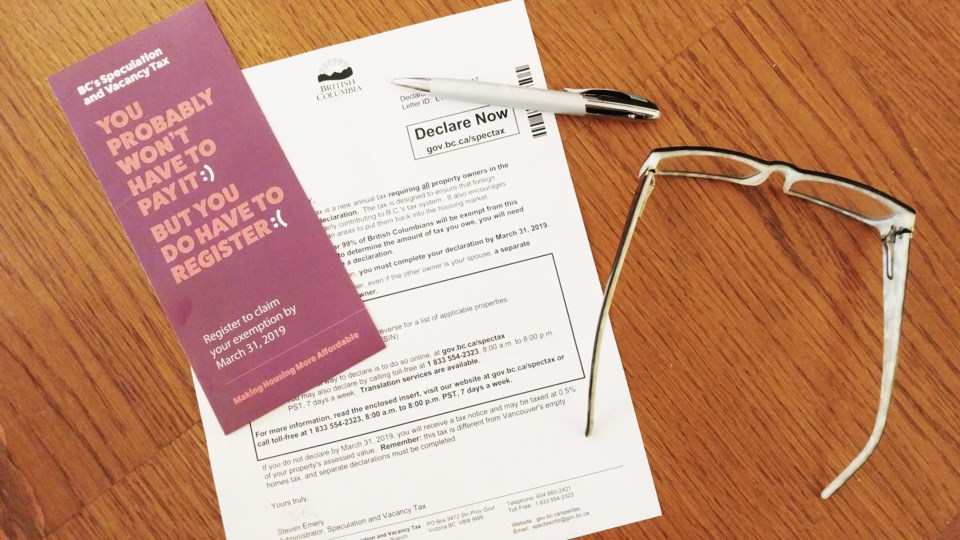The numbers are now out that show the reach of the province’s new housing speculation tax and I have to say they are rather underwhelming.
Just 2,410 British Columbia residents are paying the tax.
That’s it. A mere 2,410 people from B.C. That is less than 0.1 per cent of eligible voters in this province.
Overall, just 12,029 people are being hit by the tax. Most are foreign nationals, while about 13 per cent are Canadians from other provinces.
Given these measly numbers, it is hard to see how the B.C. Liberals will be able to turn the speculation tax into some kind of election issue come the next campaign.
It is also difficult to draw a line connecting the tax to lowering housing prices. While the benchmark price of a house in Metro Vancouver has dropped to below one million dollars for the first time in two years, other factors have likely contributed to that drop much more than the relatively benign speculation tax.
Even Finance Minister Carole James is quick to attribute the modest decline in housing prices to a number of measures, including the overall economy, new mortgage rules and interest rates.
“The government doesn’t have all the tools to be able to deal with the housing market,” she told me last week. “I’m feeling quite positive about the direction but it is not a short-term fix.”
James has also established a registry for bare land trusts requiring public disclosure of ownership and she has increased the foreign buyers’ tax, measures which are presumably also having an impact. Of course, housing is still out of reach for most people (not many can afford a million dollar mortgage) and will likely stay that way for some time yet.
All of this raises an interesting policy question: given the speculation tax’s rather minor presence, is it really fair to single out those 2,410 British Columbians to pay a tax on what is likely, for the most part, a family vacation home that sits empty during the winter months?
The finance ministry news release that contained the statistics stated the aim of the tax is, first of all, to be “targeting foreign and domestic speculators who own homes in British Columbia but do not pay tax here.”
So far, the NDP government has yet to prove those 2,410 British Columbians paying the speculation tax are actual speculators, although we can be fairly sure they pay taxes in this province.
James is set to meet in September with the mayors of the geographical regions captured by the tax to see if changes are required. Will the mayors be able to press for B.C. residents – given there are so few of them affected – to be granted an exemption from the tax?
If the case can be made that some are indeed “speculators” then fine, hit them with the tax. However, if that label cannot be proven, an exemption should be considered.
The mayors (many of whom are on record as opposing the tax to begin with) may want to scrap the tax entirely, but at the very least, they may want to go to bat for local citizens. Taxing foreign nationals for buying B.C. real estate is one thing, but applying a special tax on residents for, say, inheriting a family vacation cottage is quite another.
The tax has generated about $115 million in revenue for the government, and it appears that British Columbian owners of second homes contributed about $20 million of that amount. Two-thirds of the money appears to come from foreign nationals.
Again, that $20 million is a drop in the government’s budget bucket, but it is likely a major household expense for those 2,410 folks. The NDP government cannot seriously think that paltry amount of money is having an impact on our multi-billion dollar real estate industry, or a positive impact that outweighs the financial considerations for those B.C. homeowners.
The government’s own numbers speak for themselves. Perhaps a re-think is in order.
Keith Baldrey is chief political reporter for Global BC. Keith.Baldrey@globalnews.ca
What are your thoughts? Send us a letter via email by clicking here or post a comment below.



